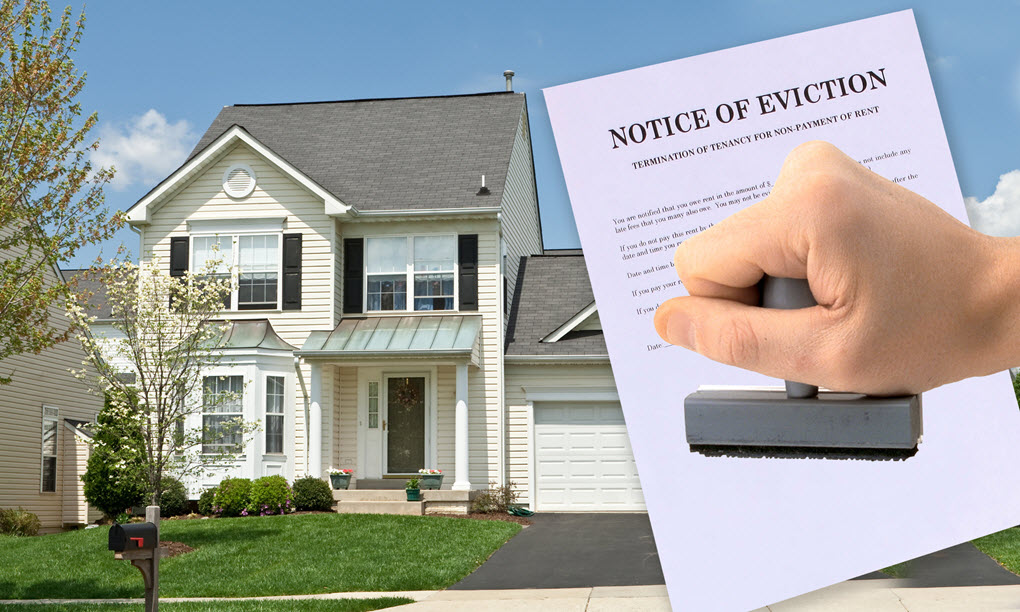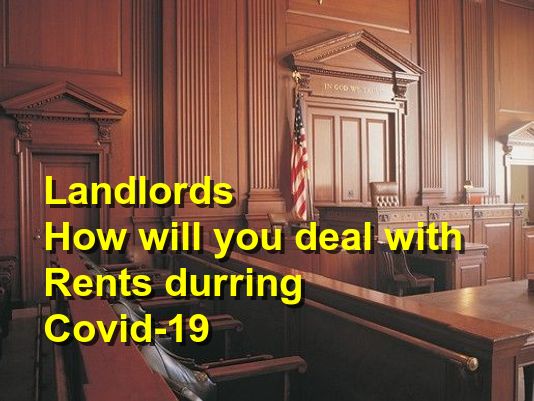How should Landlords as rental housing providers respond to and handle the situation of Rent relating to COVID-19
On March 16, 2020, The White House signed an Executive Order allowing local jurisdictions to enact eviction protections for renters that experience substantial financial hardships as a result of a tenant’s medical expenses, childcare, loss of wages, layoffs or reduction of hours relating to COVID-19 (Coronavirus). Following the order, cities have issued executive orders or have passed ordinances barring certain residential evictions.
State-Specific COVID-19 Resources
Here are a few ways to approach this delicate and challenging issue
1. Communicate With Renters:
First, communicate with your renter. Empathize with them and let he or she know how you feel about these unprecedented circumstances. Explain that all of us are in the same situation and because you want to ensure you can continue to provide them with a safe, well-maintained home, that would be impossible without receiving the rent you depend on to maintain the building and to support your own family.
2. Empathize:
Now, the remainder of the steps here are more concrete, but I want to make sure we address this. Tenants are people, and they are going through a remarkably scary time, as well. Perhaps it’s even worse than you’re going through, because you’re probably more financially educated than many of your tenants. So before anything else, listen to your tenant. Talk with them. Empathize with them. We’re all in this together, so let’s remember to be human and keep people before profit in our discussions.
3. Explain That Rent Is Still Due:
For as long as there have been tenants and landlords and bills to be paid, there is a super interesting piece of human behavior at play: People will pay the bills that give them the greatest consequence of not paying. In other words, most people financially struggling can pay most of their bills—but not always all of them.
This is why late fees are so vital in normal landlording. When the choice between paying rent and buying a flat-screen TV are presented to a tenant, the late fee and threat of eviction tips the scale toward using that money to pay rent.
But we’re not really dealing with flat-screen TVs today, are we? Regardless, the principle still applies. It’s likely your tenant is going to have to make some serious decisions on which bills are being paid. This is why after talking with the tenant and sympathizing with them, I believe it’s still important to let them know that the rent is still due.
As I’m sure you’ve heard, evictions are being suspended in most areas of the U.S. right now. The ability to issue a late fee might also be banned soon. Your tenant very well might assume that this means the need to pay rent is being suspended, and it’s your job to inform them otherwise.
Even if you can’t evict right now, it doesn’t mean they still don’t owe the rent, and it doesn’t mean you won’t evict when the courts open back up. You don’t need to be a jerk about it, but letting them know that you have a mortgage and other bills to pay is going to be important.
4. Give Your Tenant Options:
Once you’ve explained that the rent is still due, now it’s time to help the tenant navigate this difficult time. We plan to do this by giving them their options, as they may be unaware of the different ways they could come up with the rent.
First, we plan to keep an eye on programs that the government is designing to help tenants. This is a rapidly changing time, so we’ll keep current on assistance programs. Right now, there is a very real possibility that the government is going to issue cash payments to every adult American, which could help. But even if they don’t, there may likely be local, state, or federal programs that could.
Also, we are going to offer other suggestions, as well. For example, could they borrow the money from a relative? Or could the rent be paid via credit card?
In fact, to help where we can, we plan to offer to pay the fee associated with using a credit card. Now would be a good time to get set up with a rent collection system that has the ability to get paid via credit card.
5. Rent Deferral Plan:
Now, Its like some loans, banks can take one or two payments and move this to the back of the loans. Well these are not loans so…..
If I brought this up at the beginning for tenants, most everyone would jump at it. Remember, humans will naturally pay the most pressing bill, so I need them to know that rent is incredibly high on their priority list.
So, step five is our “worst-case” measure that will only be mentioned to tenants when they can’t or don’t pay their rent—not when they call and say they won’t be able to. We will still let the tenant know that rent is due on the 1st, give them the options I just mentioned, and even still issue a late-notice to the tenant if they miss rent.
If they really have exhausted their options and just can’t pay the rent?
Rent Deferral Plan
Having this documented plan in place shows the tenant that this is not us winging it—but we have a system in place to handle this crisis for everyone.
*First, there is a really important question we will ask each tenant: “How much CAN you pay toward your rent?”
Chances are, even if they can’t pay all their rent, they can probably pay some of their rent. Maybe their rent is $1,000 per month, and they can only pay $300. We’ll accept that $300 and move onto the deferral plan.
Rent Deferral Plan, allows the tenant to opt into a payment plan for their rent over the following 10 months. The deferral plan is an addendum to their lease that gives them the ability to take their rent and pay it in equal portions over the next 10 months (beginning the second month after enacting). It basically gives them an extra month before the increased payment begins.
For example, let’s say we’ve gone through all this, but the tenant simply cannot make the April 1st rent. They owe $1,000 in rent and because we asked what they can put toward it, they are able to pay $300. The remaining $700 becomes $70 per month and gets added to their rent beginning June 1st.
So, starting June 1st (not May 1st, and I’ll explain why in a second), they will pay $1,070 per month in rent until next March. Why not start the payment next month? Simply because I have a strong suspicion that this is not going to end that quickly and a one-month deferral may not be enough time to get back on their feet. This is why we’re going to wait an extra month before adding the extra amount. Furthermore, it is our company policy that during this time, a tenant will be allowed to use this twice. Of course, we won’t tell them this immediately, because we want to work through steps one through four first on the next month, as well. Rent has to remain a priority.
If after two months they are still unable to pay, the tenant may just need to be removed. This is completely uncharted territory we find ourselves in today, so I’m not going to lie to you and tell you I know exactly what we’ll do then. But the government can’t forever stop evictions and stop making people pay rent while continuing to force mortgage payments and foreclosures—or nearly every single landlord in the country will eventually go bankrupt.
If this social distancing, job loss, and potential economic meltdown continues, we’ll make new rules as it happens. My guess is that the government will offer more and more programs to attempt to help, because remember—you and I are not in this alone. Everyone is trying to figure this out. And we will. Humans have an incredible ability to figure stuff out when the night is darkest. We will get through this. We will survive. We will emerge stronger.
I hope this sheds some light on what I’ll be doing in my personal rental portfolio to handle potential rent issues in the near future. Maybe you’ll be doing something different—and that’s great. I encourage you to share your thoughts below and let us know what your plan is. And perhaps together, we can help the world move forward financially.
Download the Forms for Covid-19 Agreements with Tenant Today!
Private and/or Non-Profit COVID-19 Resources
NationalEvictions.com is here for Landlords, Property Owners and Property Management Professionals. We can prepare notices to be sent to Tenants, Have them Served to your Tenants, If and when the Notices expire have all the court forms ready to file with the courts for Landlords.
Find out more about your rights and our services on our website: https://NationalEvictions.com
Tags:
Eviction Information,
LANDLORDS,
Leases & Contracts

















